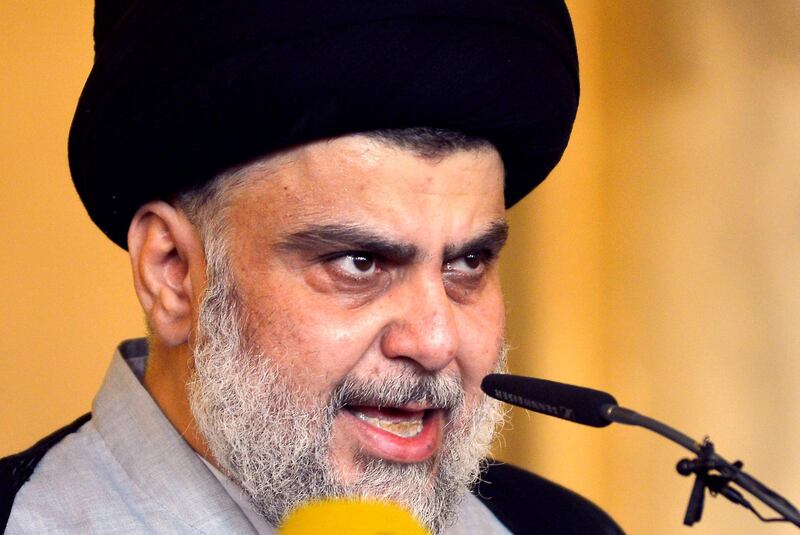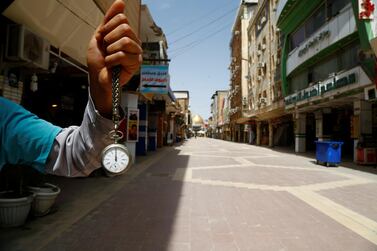Iraqi populist cleric Moqtada Al Sadr said on Wednesday that his supporters must kneel and cry during “special prayers” on Friday to beg for God's help in battling the coronavirus crisis.
The country, which has a poor healthcare system, on Wednesday recorded a total of 1,202 confirmed cases and 69 deaths.
Most are linked to neighbouring Iran, where the outbreak has killed nearly 4,000 people and infected more than 64,000.
“I will be holding a special prayer on Friday that will curb the pandemic,” Mr Al Sadr said on Twitter.
He advised his followers to cry and prostrate on the ground for half an hour while asking God to annihilate the virus.
— مقتدى السيد محمد الصدر (@Mu_AlSadr) April 7, 2020
“This must be done after Friday prayers but before the afternoon prayers,” Mr Al Sadr said.
The cleric, who is an influential figure in Iraq’s political and social spheres, said the pandemic would not stop unless governments revoked laws legalising same-sex marriage.
Iraq's response to the pandemic has been undermined by power struggles among ruling elites to nominate a new prime minister after the resignation of Adel Abdul Mahdi in November.
Open borders with Iran, which supports armed militias in Iraq and across the region, has also limited the chances of overcoming the crisis.
Iraq is a transit centre for Iranian support to the Syrian regime.
There is also major concern that Iraq, shattered by decades of war and sanctions, cannot respond to a large number of cases.
The World Health Organisation said Iraq's medical infrastructure had "some significant gaps" that it was trying to address.
There are also more than 4 million people, almost half of them children, in need of humanitarian assistance in the country.
Fear and lack of knowledge in handling infected bodies is also a rising concern for authorities.
The Health Ministry said it would follow guidelines set out by the WHO, which says "safe burials are guaranteed in any cemetery as long as the precautions are taken".
Last month, authorities introduced a curfew and restrictions on travel as part of measures to contain the infections.
But officials have raised concerns that people did not adhere to restrictions.
Mr Al Sadr urged his supporters to follow government guidelines, reversing earlier statements that encouraged his Shiite followers to gather to mark religious occasions.







